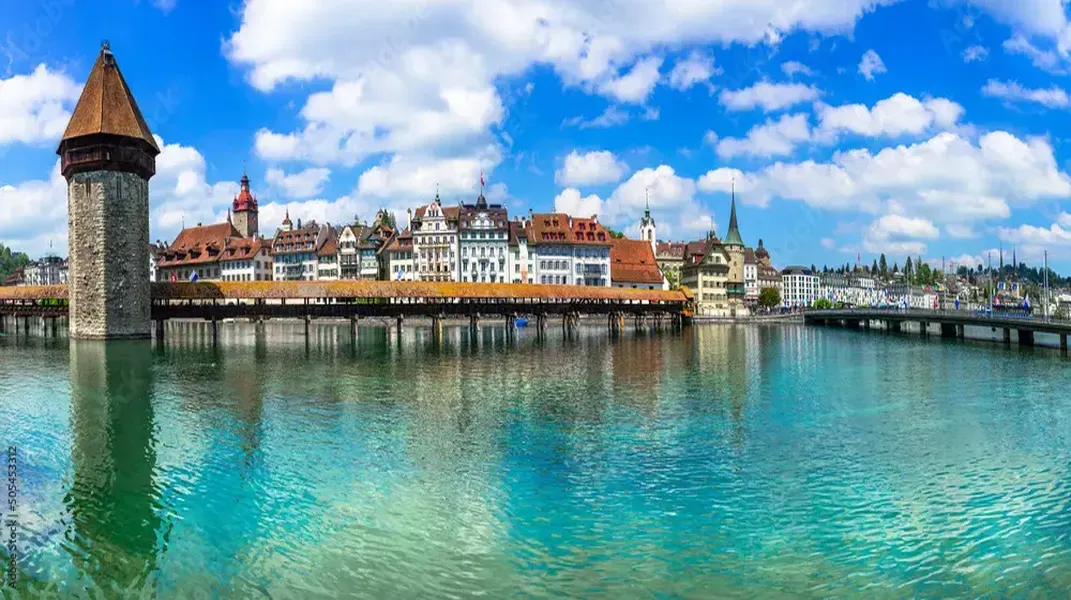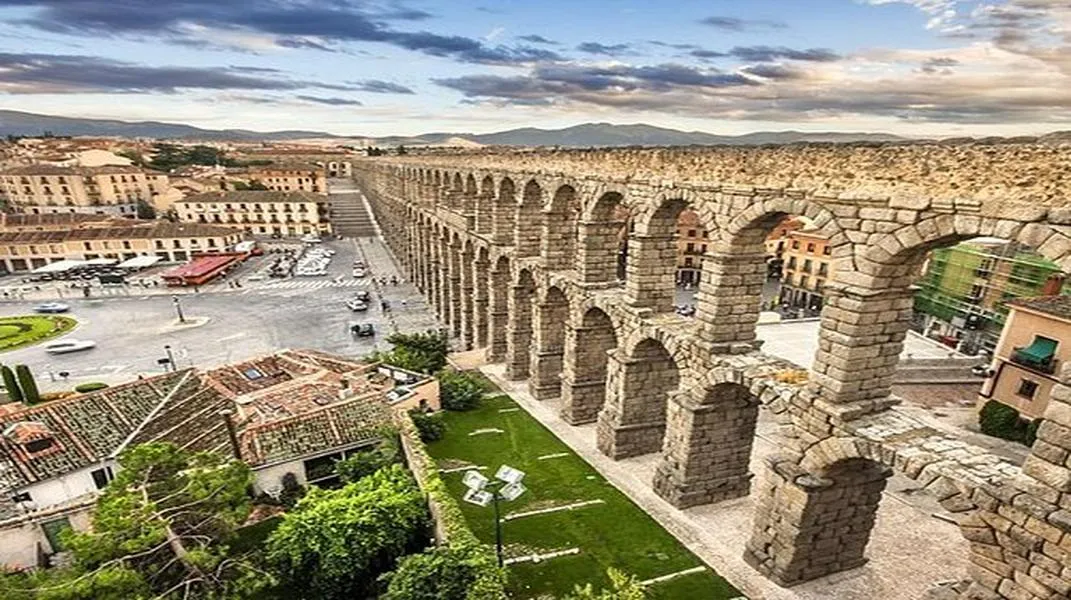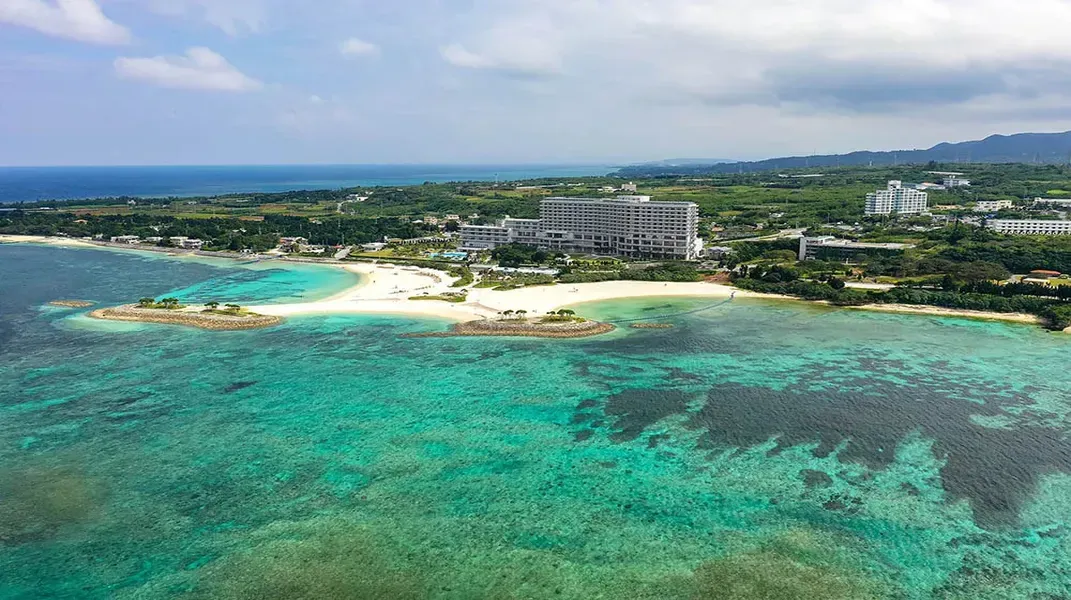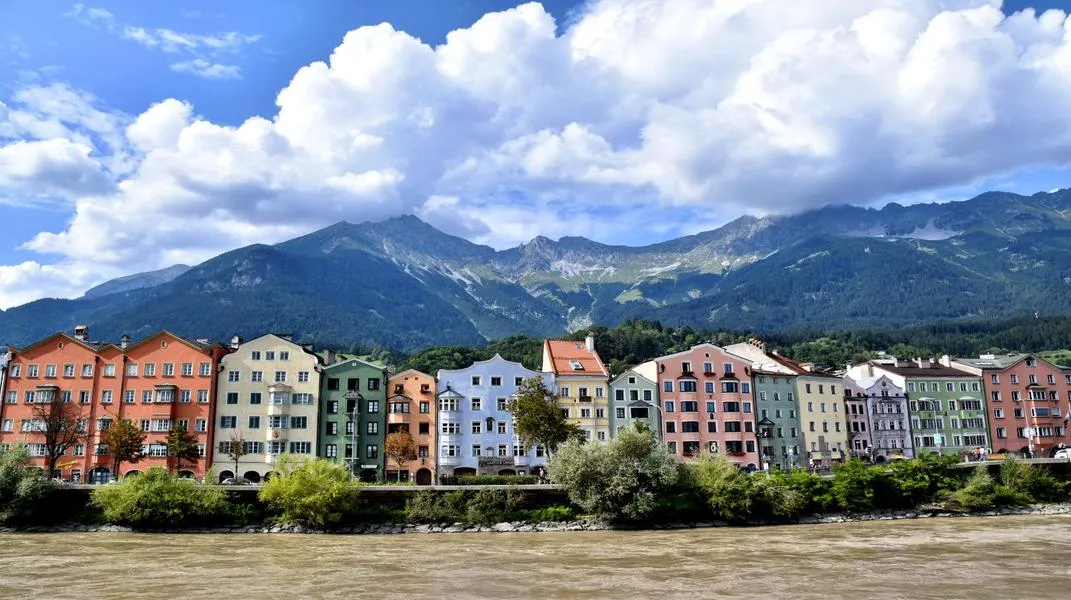Discovering Lucerne: A Jewel in the Heart of Switzerland
Nestled between the serene Lake Lucerne and the majestic peaks of the Swiss Alps, Lucerne is a picturesque city that embodies the charm and elegance of Switzerland. Known for its stunning scenery, rich history, and vibrant culture, Lucerne attracts millions of tourists each year. This article will provide you with a detailed guide to this enchanting city, including must-visit attractions, cultural experiences, and essential materials to prepare for your visit.

A Brief Overview of Lucerne
Lucerne, located in the central part of Switzerland, is the capital of the canton of Lucerne. With a population of around 82,000, it is known for its well-preserved medieval architecture, stunning lakeside vistas, and a backdrop of snow-capped mountains. The city serves as a gateway to some of Switzerland’s most beautiful alpine regions, making it a popular base for exploring the surrounding landscapes.
Getting to Lucerne
Lucerne is easily accessible by train, car, or plane. The Swiss rail network is renowned for its efficiency, and trains from major cities like Zurich, Bern, and Geneva run frequently to Lucerne. If you’re flying into Zurich Airport, you can reach the city by direct train in about an hour. For those driving, Lucerne is well connected via the A2 motorway.
Must-Visit Attractions
1. Chapel Bridge (Kapellbrücke)
One of Lucerne's most iconic landmarks, the Chapel Bridge is a wooden footbridge adorned with beautiful 17th-century paintings that depict the city's history. Originally built in the 14th century, the bridge was partially destroyed by a fire in 1993, but it has since been meticulously restored. Walking across this bridge offers stunning views of the River Reuss and the surrounding mountains.
2. Water Tower (Wasserturm)
Adjacent to the Chapel Bridge, the Water Tower is a former watchtower and prison that dates back to the 15th century. The tower is an integral part of Lucerne's skyline and serves as a symbol of the city. Visitors can enjoy a stroll along the riverside promenade, where they can view both the bridge and the tower from different angles.
3. Lion Monument (Löwendenkmal)
Carved into a sandstone rock face, the Lion Monument is a poignant tribute to the Swiss Guards who died during the French Revolution. The sculpture depicts a dying lion and is a powerful representation of bravery and loyalty. It is one of the most visited monuments in Switzerland and is surrounded by a peaceful park, offering a place for reflection.
4. Old Town (Altstadt)
Lucerne's Old Town is a charming area filled with narrow cobblestone streets, colorful frescoed buildings, and delightful squares. The town is home to numerous shops, cafes, and restaurants where you can immerse yourself in the local culture. Be sure to visit the Town Hall and the Musegg Wall, a well-preserved medieval fortification that offers panoramic views of the city.
5. Lake Lucerne
The breathtaking Lake Lucerne is a focal point of the city, surrounded by mountains and dotted with charming villages. Visitors can embark on boat cruises that range from short trips to full-day excursions, allowing them to take in the stunning scenery and explore nearby towns such as Weggis and Vitznau. In the summer months, the lake is perfect for swimming, sailing, and other water sports.
6. Mount Pilatus
A short distance from Lucerne, Mount Pilatus is a popular destination for outdoor enthusiasts and nature lovers. Accessible by the world's steepest cogwheel railway or a thrilling aerial cableway, the summit offers breathtaking views of the Swiss Alps and Lake Lucerne. Hiking trails abound for those seeking adventure, and there are also dining options at the top for a memorable meal with a view.
7. Swiss Museum of Transport
For those interested in Switzerland's transportation history, the Swiss Museum of Transport is a must-visit. The museum features a comprehensive collection of vehicles, including trains, planes, automobiles, and even spacecraft. Interactive exhibits and simulators make it a fun and educational experience for visitors of all ages.
Cultural Experiences
1. Swiss Cuisine
No visit to Lucerne would be complete without indulging in Swiss cuisine. Fondue, raclette, and rösti are must-try dishes that reflect the country's culinary traditions. Local restaurants, such as Restaurant Fritschi and Wirtshaus Taube, offer authentic Swiss dining experiences. Don’t forget to pair your meal with a glass of Swiss wine or a locally brewed beer.
2. Events and Festivals
Lucerne hosts a variety of events and festivals throughout the year. The Lucerne Festival, held in the summer, attracts classical music enthusiasts from around the world. The city also hosts a Christmas market during the holiday season, where visitors can shop for local crafts and enjoy seasonal treats.
3. Lucerne's Art Scene
Art lovers will appreciate Lucerne's vibrant art scene, with several galleries and museums showcasing works by local and international artists. The Rosengart Collection, featuring works by Picasso and other modern masters, is worth a visit. Additionally, the city’s public spaces often feature temporary art installations that enhance the cultural landscape.
Preparing for Your Visit
To make the most of your trip to Lucerne, it’s important to prepare adequately. Here are some essential materials and tips to consider:
1. Travel Documents
Ensure that you have all necessary travel documents, including a valid passport and any required visas. If you are a citizen of an EU or Schengen Area country, you may not need a visa for short stays. Check the latest regulations prior to your trip.
2. Accommodation
Lucerne offers a range of accommodation options, from luxury hotels to budget-friendly hostels. Popular choices include the Hotel des Balances, the Hotel Monopol, and the youth hostel near the lake. It is advisable to book your accommodation in advance, especially during peak tourist seasons.
3. Transportation
Consider purchasing a Swiss Travel Pass, which provides unlimited travel on the Swiss Travel System network, including trains, buses, and boats. This pass also grants free or discounted entry to many museums and attractions. Lucerne itself is compact and walkable, making exploration easy.
4. Weather Considerations
The weather in Lucerne can vary significantly by season. Summers (June to August) are warm, with temperatures averaging around 25°C (77°F), while winters (December to February) can be cold and snowy, with temperatures often dropping below freezing. It is essential to check the weather forecast and pack accordingly, including layers for cooler evenings and sturdy shoes for walking.
5. Local Currency
Switzerland uses the Swiss Franc (CHF). Credit and debit cards are widely accepted, but it is advisable to have some cash on hand for small purchases or in case you visit places that do not accept cards.
6. Language Preparation
While German is the primary language spoken in Lucerne, many residents also speak English, especially in tourist areas. Knowing a few basic phrases in German can enhance your experience and help you connect with locals.
7. Itinerary Planning
To make the most of your time in Lucerne, consider creating a rough itinerary that includes the attractions you want to visit, dining experiences, and any events or festivals that coincide with your stay. This will help you manage your time effectively and ensure you don’t miss out on the city’s highlights.
Conclusion
Lucerne is a captivating destination that offers a unique blend of natural beauty, rich history, and vibrant culture. From its iconic landmarks and breathtaking landscapes to its culinary delights and artistic experiences, there is something for everyone in this Swiss gem. By preparing adequately and embracing all that Lucerne has to offer, you are sure to create lasting memories in this enchanting city. Whether you're exploring the charming Old Town, taking a leisurely boat ride on Lake Lucerne, or savoring a delicious fondue, Lucerne promises an unforgettable experience in the heart of Switzerland.




